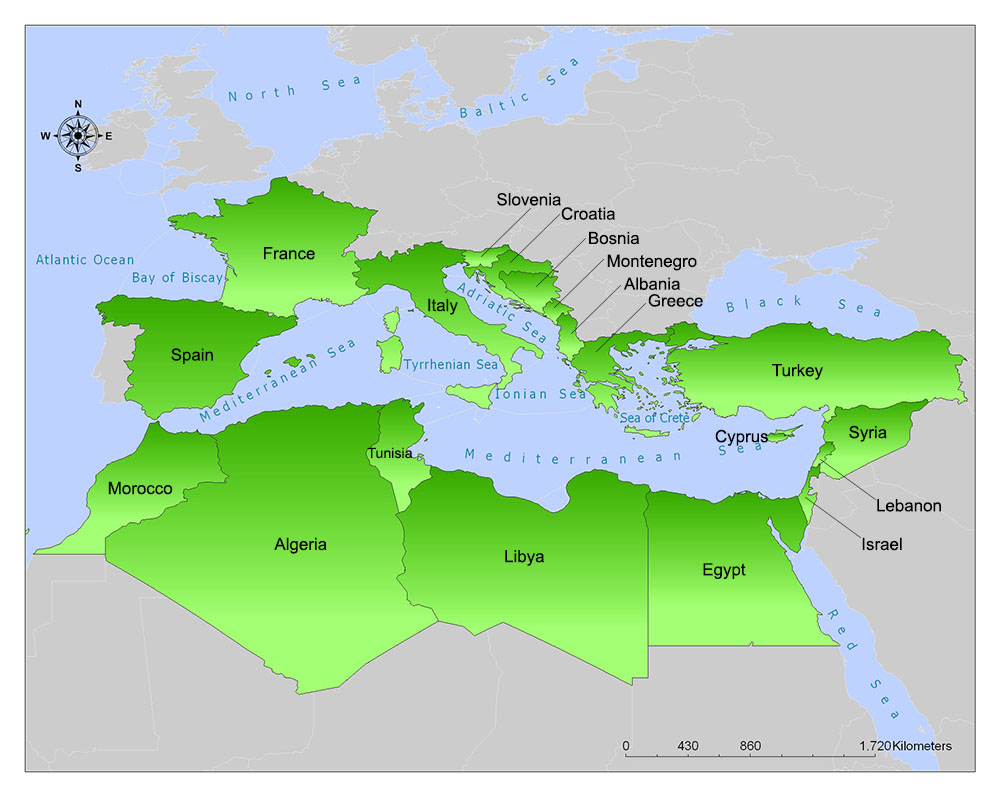Experience Wholeness: A Practical Guide to the Mediterranean Lifestyle

Introduction to the Mediterranean Lifestyle
The Mediterranean lifestyle is more than just a diet-it’s a holistic philosophy rooted in the traditions of coastal communities bordering the Mediterranean Sea. This approach prioritizes balance, health, and happiness , emphasizing the enjoyment of daily routines, close relationships, and a deep appreciation for life’s simple pleasures. Unlike fleeting trends, the Mediterranean lifestyle has stood the test of time, supported by research linking it to increased longevity and improved wellbeing [1] .
Core Principles of the Mediterranean Lifestyle
The Mediterranean lifestyle is built on several interconnected principles that go beyond just what you eat. These include:
- Plant-forward, whole-food eating
- Daily, moderate physical activity
- Low overall stress and a relaxed pace of life
- Strong social connections and community involvement
- Appreciation for natural beauty and mindful living
Each of these elements supports the others, creating a self-reinforcing system that benefits both body and mind [2] .
The Mediterranean Diet: Foundation and Guidance
The Mediterranean diet forms the nutritional core of the lifestyle. This way of eating is characterized by daily consumption of vegetables, fruits, whole grains, beans, nuts, and olive oil as the main culinary fat. Fish, poultry, dairy (especially yogurt and aged cheeses), and eggs are eaten in moderation, while red meat and processed foods are limited [5] . Meals are often seasoned with herbs and spices instead of salt and enjoyed slowly, often with family or friends.
To implement the Mediterranean diet in your daily life, consider these actionable steps:
- Build meals around vegetables, legumes, and whole grains. For example, a lunch of lentil salad with tomatoes, cucumbers, and olive oil offers both variety and nutrition.
- Replace butter or margarine with extra-virgin olive oil for cooking and dressings.
- Include fish or seafood at least twice per week. Grilled fish with lemon and herbs is a common Mediterranean dinner.
- Limit red meat to occasional meals and choose lean cuts when you do consume it.
- Enjoy dairy in moderation, focusing on fermented products like Greek yogurt or aged cheeses.
- Choose fruit for dessert and snack on nuts or fresh vegetables rather than processed foods.
- If you consume alcohol, do so in moderation, typically as wine with meals and always in the context of socializing [4] .
For further guidance or specific meal planning tips, you can consult with a registered dietitian or explore in-depth resources from health organizations such as the Mayo Clinic [5] .
Physical Activity: Movement as a Lifestyle
In the Mediterranean lifestyle, activity is woven into the fabric of daily life rather than reserved for intense gym sessions. Walking to local markets, gardening, cycling, swimming, and dancing are all common forms of moderate exercise. These activities are not only beneficial for physical health but also provide opportunities for social interaction and engagement with nature [2] .
To integrate more movement into your routine:
- Opt for walking or cycling when running errands or commuting short distances.
- Participate in group exercise classes or community sports for both fitness and connection.
- Try gardening, hiking, or outdoor yoga to combine exercise with exposure to natural beauty.
Start by setting small, achievable goals, such as a daily 30-minute walk, and gradually expand your activities. If you have health concerns, consult your healthcare provider for tailored exercise recommendations.
Social Connection and Community
One of the distinguishing aspects of the Mediterranean lifestyle is its emphasis on conviviality -the joy of sharing meals and experiences with others. Family gatherings, neighborhood celebrations, and communal events are central. These connections are associated with lower stress levels and enhanced emotional wellbeing [1] .
If you want to foster stronger social ties, consider:
- Scheduling regular meals with friends or family, even if only once a week.
- Participating in local cultural or community events.
- Joining clubs or organizations aligned with your interests-such as cooking classes or walking groups.
Online directories or community centers may provide listings of local social opportunities. If you feel isolated, you can reach out to mental health professionals for support in building social confidence and connection.
Mindfulness, Stress Reduction, and Rest
A hallmark of the Mediterranean way of life is a relaxed daily rhythm. Time is set aside for rest, such as the traditional afternoon siesta, and there is a conscious effort to appreciate the present moment. This approach to daily living reduces chronic stress, which is linked to numerous health benefits [3] .
To embrace mindfulness and stress reduction:
- Practice gratitude during meals by reflecting on the food and company.
- Incorporate short periods of rest or quiet contemplation into your day.
- Use breathing exercises or meditation to manage stress.
If you struggle to find time for rest, consider simple changes such as turning off electronic devices during meals or setting a consistent bedtime to improve sleep quality.
Bringing Mediterranean Design into Your Home
Physical surroundings also contribute to the Mediterranean lifestyle. Homes in this tradition often feature natural materials, light-filled spaces, and a connection to the outdoors-elements that promote relaxation and wellbeing. You don’t need to live on the coast to bring these qualities into your space [1] .
To adapt your home:
- Maximize natural light and use soft, earthy colors for decor.
- Incorporate plants and outdoor seating to enhance your connection to nature.
- Choose furniture and design elements made from wood, stone, or other natural materials.
For inspiration, you may look for Mediterranean home design guides at your local library or seek out reputable design websites for practical tips.
Potential Challenges and Solutions
Adopting a new lifestyle can pose challenges, especially in fast-paced or urban environments. Common obstacles include limited access to fresh, local produce, time constraints for meal preparation, and difficulty finding community events.
To address these challenges:
- For food access : Explore farmers’ markets, CSA programs, or local grocery stores that prioritize fresh produce. If options are limited, frozen vegetables and fruits can be good alternatives.
- For busy schedules : Meal prep on weekends and choose simple, one-pot Mediterranean recipes that save time during the week.
- For social connection : Start small by inviting one friend or neighbor for a meal, or participate in online communities dedicated to Mediterranean cooking and wellness.
Remember, the Mediterranean lifestyle is flexible and adaptable-progress, not perfection, is the goal.

Source: mappr.co
Alternative Approaches and Integrations
While the Mediterranean lifestyle is rooted in specific cultural traditions, its principles can be integrated with other approaches to wellness. For example, vegetarians can adapt the diet by emphasizing plant-based proteins, while those with gluten sensitivities can choose gluten-free grains like quinoa or brown rice.

Source: onestopmap.com
If you have specific dietary restrictions or health conditions, consult with a registered dietitian to tailor the Mediterranean approach to your needs. Many public health organizations and local clinics offer nutrition counseling services-search for “registered dietitian near me” or contact your primary care provider for referrals.
Summary: Key Takeaways for Implementation
The Mediterranean lifestyle offers a path to greater wellbeing through balanced nutrition, natural movement, strong relationships, and mindful daily rhythms. By prioritizing whole, unprocessed foods, daily physical activity, and meaningful social interactions, you can experience many of the benefits documented in Mediterranean communities.
To get started, consider these steps:
- Gradually shift your diet toward more plant-based, whole-food meals.
- Find enjoyable ways to move each day and connect with others regularly.
- Create space in your schedule for rest and mindfulness.
- Adapt your home environment to promote relaxation and connection to nature.
If you need additional support, reach out to local health professionals, search for Mediterranean cooking classes in your area, and explore reputable wellness organizations for resources.
References
- The Adelante Homes (2024). Mediterranean Lifestyle: The luxurious way to live well.
- The Mediterranean Lifestyle (2025). 7 Principles Of The Mediterranean Lifestyle.
- MedLifestyle.org. What is Mediterranean Lifestyle
- BMC Medicine (2014). Definitions and potential health benefits of the Mediterranean diet.
- Mayo Clinic (2023). Mediterranean diet for heart health.






